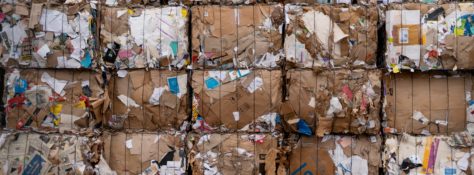News
A circular economy attempts to limit consumption and waste by promoting full reuse of products and regeneration of already utilized materials. Embracing less production of disposable materials and waste is beneficial for the economy and environment, as well as entirely safe with proper cleaning procedures.
Learn MoreNews
A combination of the words fat and iceberg, fatbergs are large masses of common household trash items that do not belong in the water works including cleaning wipes, grease, and various personal hygiene products. Improper disposal means clogged pipes, sewage backups, damaged equipment at wastewater treatment plants.
Learn MoreNews
In his 2020 State of the City address, New York City Mayor Bill de Blasio emphasized climate change as a top priority for his administration.
Learn MoreNews
NYLCV strongly supports a community-driven discussion about the next phase of Rikers Island, and also supports the City undertaking studies about its green new economy.
Learn MoreNews
Two recent UN reports indicate that the world’s ecosystems and climate are already undergoing dramatic change, and that parties to the Paris Agreement have failed to halt greenhouse gas emission growth.
Learn MoreNews
New York State’s Environmental Protection Fund supports a wide variety of environmental projects through four programs, which focus on solid waste, parks and recreation, open space, and climate change mitigation and adaptation.
Learn MoreNews
Single-use plastics must be reduced to address climate change and meet NYC’s goal of Zero Waste by 2030.
Learn MoreNews
New York City continues to fall short of its waste reduction goals. NYLCV highlights a number of solutions to the problem.
Learn More

